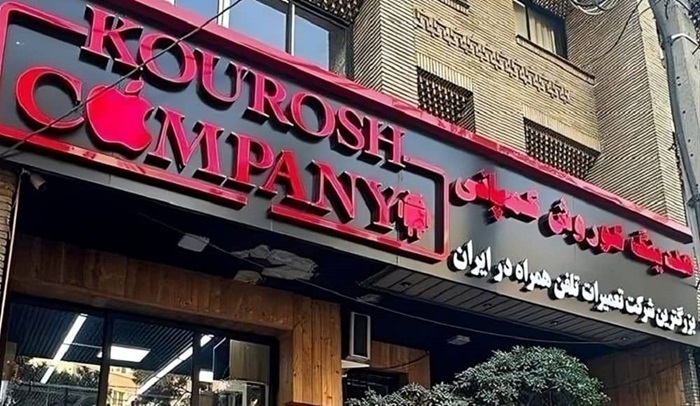
In February 2024, the Iranian mobile phone market was rocked by a startling revelation as Kourosh Pardazan EyeSaa, operating under the name Kourosh Company, became the center of a massive fraud scandal.
The company, once a prominent player in the trading of iPhones, is now embroiled in controversy after its management disappeared, leaving a trail of defrauded customers and unanswered questions.
The scandal unfolded when allegations surfaced about Kourosh Company’s deceptive sales practices. It promised consumers the latest iPhone models at prices significantly lower than the market rates, claiming to eliminate intermediaries and thus reduce costs. Specifically, iPhones, which are typically priced between 35 to 40 million Iranian rials, were offered at an astonishingly low price of 20 million rials ($354), by purportedly cutting out middlemen.
Leveraging extensive digital marketing campaigns and celebrity endorsements, the company promised the delivery of iPhone 13 models within 45 to 50 days, alongside substantial discounts and special offers. This strategy successfully attracted a large number of customers. However, after collecting payments, the company’s executives vanished without delivering on their promises, sparking outrage among those who had been duped.
Further investigations revealed the company’s CEO and top officials had fled the country, with evidence pointing to their presence in either Turkey or Dubai. The sudden closure of Kourosh Company and the disappearance of its management have left customers in a state of shock and frustration.
Record $3.7B Embezzlement Scandal Shakes #Iran’s Tea Industry, Revealing Deep #Corruption and Production Consequenceshttps://t.co/9FaxkCSvFj
— NCRI-FAC (@iran_policy) December 6, 2023
The scandal has also exposed the complicity of Iranian state officials in enabling fraudulent activities. Revelations from Iranian dissident groups and a breach of parliamentary servers have highlighted the involvement of members of the Parliament and the Islamic Revolutionary Guard Corps (IRGC) in bribery and corruption, fostering an environment ripe for exploitation.
Critically, the scandal has shed light on the lack of government oversight in the issuance of trade licenses, allowing companies like Kourosh to operate unchecked. Despite lacking legal documentation and being a draft dodger, Amirhossein Sharifian, the figure behind Kourosh Company, exploited his regime connections to deceive customers.
The company’s use of state media for advertising, despite a ban on iPhones by Supreme Leader Ali Khamenei, underscores a blatant disregard for regulatory norms and highlights the regime’s failure to regulate commercial activities effectively. This incident is part of a broader pattern of corruption and embezzlement in Iran, where systemic issues have enabled unscrupulous actors to exploit vulnerable citizens repeatedly.
Watch and judge why #embezzlement is breaking new records in #Iran pic.twitter.com/Zpzd4n1qLz
— NCRI-FAC (@iran_policy) December 6, 2023
The Kourosh Company scandal is a stark reminder of the pervasive corruption within Iran’s financial and commercial sectors, echoing previous financial scandals that have devastated thousands of Iranians. These incidents underscore the urgent need for transparency, accountability, and reform to protect citizens from further exploitation and restore trust in the country’s economic institutions.

MEK Iran (follow us on Twitter and Facebook), Maryam Rajavi’s on her site, Twitter & Facebook, NCRI (Twitter & Facebook), and People’s Mojahedin Organization of Iran – MEK IRAN – YouTu
